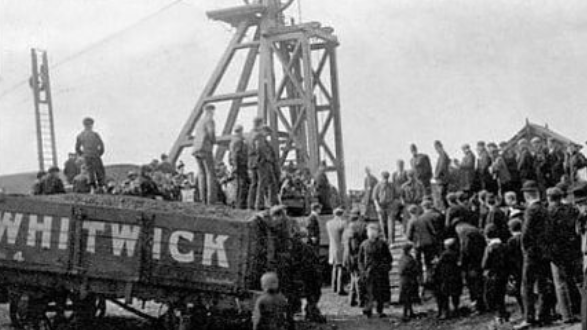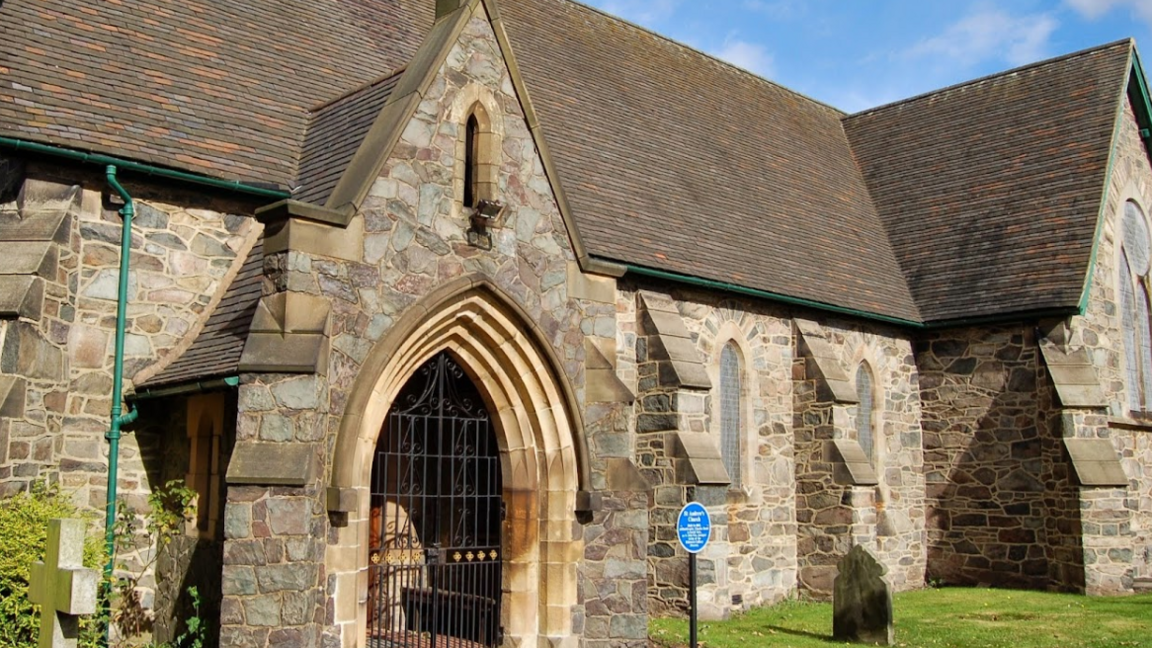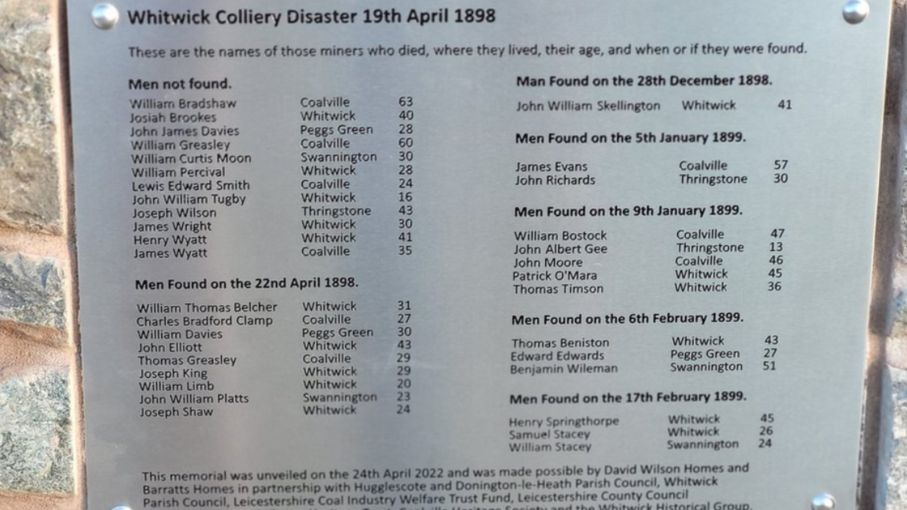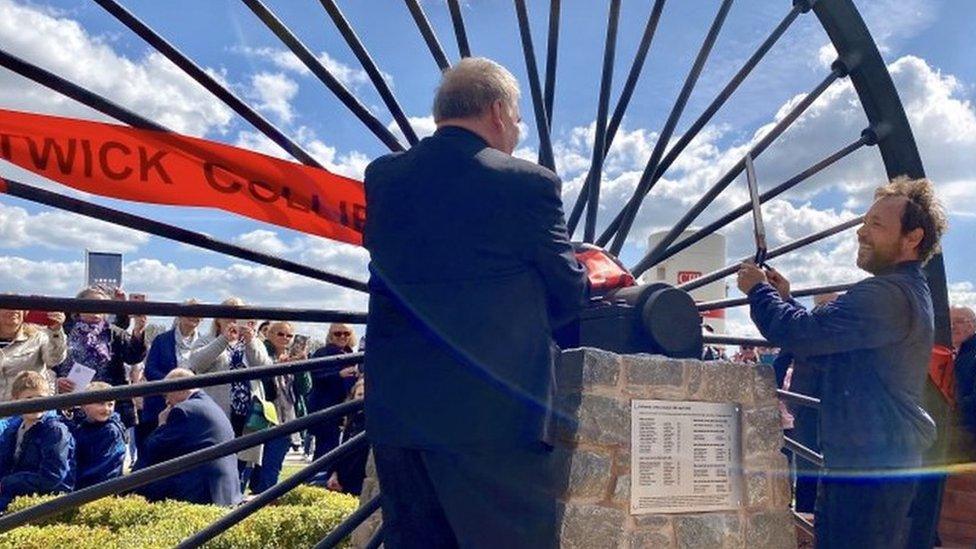The boy who died trying to save miners from fire

John Albert Gee was the youngest victim of the Whitwick Colliery Disaster
- Published
The youngest victim of a mining disaster is to be commemorated with a cross placed at his long-lost grave.
John Albert Gee, 13, was one of 35 people who died when an underground fire broke out at Whitwick Colliery, in Hugglescote, Leicestershire, on 19 April 1898.
The cross will be placed at St Andrew's Church, in Thringstone, during a service on Sunday to mark the anniversary of his birthday.
Local historian Alan Wileman said the event would commemorate the bravery the boy, known as Albert, showed on the day of the disaster.

Whitwick Colliery was Leicestershire's first deep mine, opening in 1828 and operating until 1986
The fire began during the night shift, trapping 42 colliers down the mine.
Only seven survived, and the bodies of 12 of the victims were never recovered.
"Albert had not worked there long," Mr Wileman said.
"His job was the deputy's boy, and his duties included looking after the ponies."
Mr Wileman said his own great-grandfather Benjamin was working down the pit and also died after the inferno started.
"John Albert Gee was sent into the pit to tell my great-grandfather (about the fire) and to get people out," Mr Wileman said.
"But he himself never came out.
"His body was one of those eventually recovered, but not until a long time later.
"He is remembered as a hero who died trying to save others."

The boy's grave has been pinpointed to a spot at the front of the church
Mr Wileman said that shortly after he was interred at St Andrew's, an urn that marked Albert's burial spot was smashed during work to the building, and the location was lost.
He said he and fellow historian John Colledge were able to find the spot at the front of the church earlier this year.
They contacted St Andrew's vicar, the Reverend Darren Walker, who agreed the service on Sunday could take place.
Mr Walker said: "It's a fascinating story, and Alan has worked very hard to get this service together.
"The exact location of the grave was unknown for a very long time, but we have established it was at the front of the church."

John Albert Gee's name appears on a plaque along with other victims of the fire in Grange Road, near the former pit's entrance.
Mr Wileman said the service on Sunday was expected to be attended by relatives of those who died.
Whitwick was Leicestershire's first deep mine where coal was first brought to the surface in 1828.
It was an active pit until 1986.
In 2022, the original colliery was installed as a memorial to the victims of the fire off Grange Road near the former coal mine site.
Get in touch
Tell us which stories we should cover in Leicester
Follow BBC Leicester on Facebook, external, on X, external, or on Instagram, external. Send your story ideas to eastmidsnews@bbc.co.uk, external or via WhatsApp, external on 0808 100 2210.
Related topics
- Published25 April 2022
